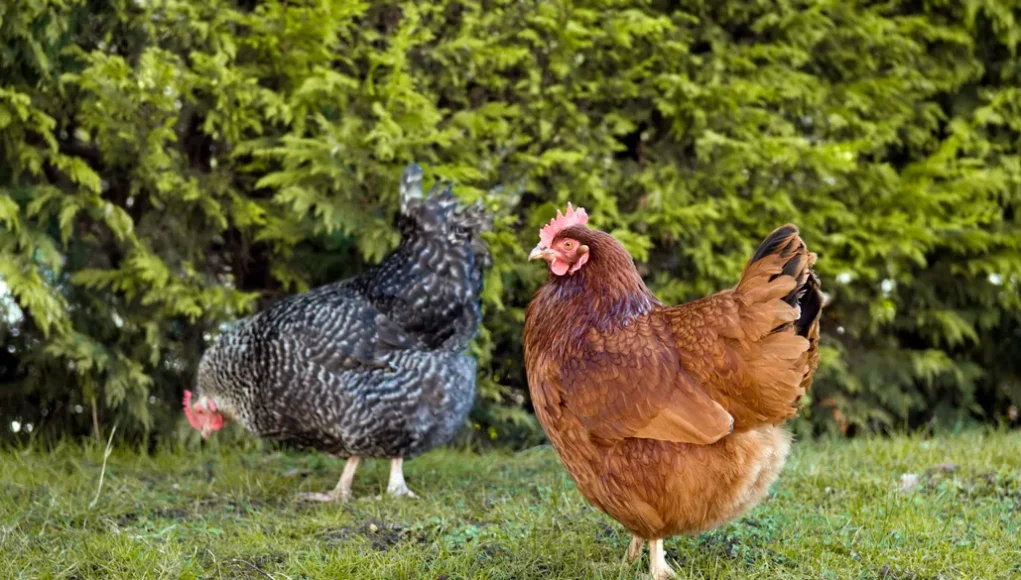Keeping your beloved chickens warm during the chilly winter months is essential for their health and productivity. As temperatures drop, ensuring your flock is comfortable and cozy becomes a top priority. But how can you achieve this naturally, without relying on artificial heat sources? Let’s explore some effective methods that will keep your chickens snug all winter long.

Understanding the Needs of Chickens in Winter
Before diving into the methods, it’s crucial to understand why keeping chickens warm is necessary. Chickens are hardy creatures, but extreme cold can lead to a decline in egg production and make them susceptible to illnesses. Addressing their basic needs helps maintain a healthy flock.
Why Temperature Matters
Chickens thrive in temperatures between 70-75F. When temperatures fall below their comfort zone, they use extra energy to stay warm, which can affect their egg-laying capabilities and overall health.
Natural Insulation Techniques
Insulating your chicken coop is the first step towards natural warmth. Use straw bales or wooden panels to create a barrier against the cold. This not only retains heat but also keeps drafts at bay, ensuring your chickens remain warm.
Using Straw and Wood
Line the coop with straw bedding, which acts as an excellent insulator. Straw traps heat and provides a comfortable, dry surface for your chickens. Additionally, wooden panels can be used to reinforce coop walls, preventing cold air from seeping in.
Ventilation: A Balancing Act
While insulation is vital, it’s equally important to maintain proper ventilation. Good airflow prevents moisture buildup, which can lead to frostbite and respiratory issues. Ensure vents are placed high in the coop to allow humid air to escape without letting in drafts.
Preventing Moisture
Keep the coop dry by regularly cleaning out wet bedding and providing a dry area for your flock. You can learn more about preventing health issues in chickens here.
Feeding for Warmth
Increased caloric intake helps chickens generate body heat. Offer a balanced diet rich in carbohydrates and proteins to keep them energetic and warm. Providing cracked corn or fermented feed in the evening can be particularly beneficial. Discover the benefits of fermented feed here.
Warm Water Access
Ensure that your flock has constant access to unfrozen, slightly warm water. This encourages them to drink more, which is crucial for their metabolism and heat production.
Natural Coop Accessories
Introduce natural elements such as perches and nesting boxes lined with hay. These provide additional warmth and comfort for your chickens. Elevated perches keep them off cold ground, while nesting boxes give them a cozy retreat.
Perch Placement
Place perches away from drafts and ensure they are sturdy. This encourages chickens to roost together, sharing body heat and staying warm.
Using Herbs for Warmth
Certain herbs can boost your chickens’ immunity and keep them warm. Incorporating herbs like oregano and thyme in their diet can offer natural health benefits. Find out more about safe herbs for chickens here.
Benefits of Herbs
Herbs not only enhance warmth but also aid in digestion and disease prevention, promoting overall well-being.
Utilizing Natural Light
Maximize natural light exposure by positioning the coop to capture sunlight during the day. Sunlight warms the coop and boosts vitamin D levels in your flock, enhancing their mood and health.
Coop Orientation
Align the coop’s largest windows towards the south or east, allowing the morning sun to warm the interior effectively.
Group Housing for Warmth
Encourage your chickens to huddle together by reducing space slightly. This social behavior increases shared body heat, keeping them warmer collectively.
Social Dynamics
Monitor their interactions to ensure dominant birds do not prevent others from accessing warmth. A harmonious flock is a warm flock.
Common Winter Ailments
Watch for signs of frostbite, respiratory issues, and lowered egg production. Early detection and intervention can prevent these problems from escalating. Learn more about treating respiratory infections naturally here.
Preventive Measures
Regular health checks and a clean environment help in preventing common winter ailments.
FAQs
Q: Can chickens survive in extreme cold?
A: Yes, chickens can survive cold temperatures if properly cared for with adequate insulation, food, and water.
Q: What is the best bedding for winter warmth?
A: Straw is an excellent choice for winter bedding as it provides insulation and comfort.
Q: How do you prevent frostbite in chickens?
A: Ensure proper ventilation, keep the coop dry, and regularly check your chickens for any signs of frostbite.

Conclusion
By understanding how to keep chickens warm naturally in winter, you can ensure your flock remains healthy and happy throughout the colder months. Implementing these natural methods will not only provide warmth but also enhance the overall well-being of your chickens. For more tips and tricks, visit this guide on natural poultry care.
This article contains affiliate links. We may earn a commission at no extra cost to you.











